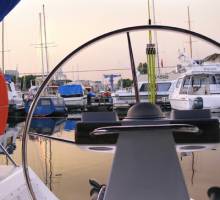
UK Boat Registraion Guide, by Hannah Cash, Yachting Lawyer
WHY REGISTER YOUR BOAT?
It is currently not compulsory under English law for owners of pleasure craft in UK to register their vessels, yet many boat owners elect for registration and in some cases your vessel should be registered. What is meant by vessel registration? And in what circumstances should you register your boat?
UK VESSEL REGISTRATION
One of the main reasons for registering your boat is to prove ownership and nationality of your vessel. It is internationally accepted that because vessels are movable and valuable assets and owe liabilities to others (especially at sea), each vessel should have a national identity in order for them comply with laws and regulations of their country and also be afforded protection under their national laws. In the absence of registration, a vessel will take its nationality from its owner.
In the UK, The Merchant Shipping Act 1995 and the Registration Regulations govern the registration of British ships. Under the act “ships” are defined as “all vessels used in navigation” and therefore this wide definition includes large ships right down through to small sailing boats. Vessels are registered with the Registrar General of Shipping on the UK Ship Register which is made up of 4 parts:
(a) Part 1 – Registration for small ships, pleasure craft and some commercial vessels
(b) Part 2 – Registration for fishing vessels
(c) Part 3 – Small ships register
(d) Part 4 – Registration of foreign vessels; enabling foreign vessels chartered to British charters to be British registered for the duration of the charter.
As an owner of pleasure craft, you need only concern yourself with Part 1 or Part 3 registration. If you register your vessel on the UK Ship Register you will be afforded the international recognition, prestige and protection of flying the British Red Ensign flag. See our Guide to British Red Ensign and Yacht Flagging for more information.
Which registration option to choose will depend on the size of your vessel, its intended use and the intended cruising waters you will be sailing in. Here is a useful checklist to help you decide which option is best suited to you and your vessel:
Part 1 Register of British Ships
Register your vessel under a Part 1 registration if:
• your vessel is over 24 metres in length
• it is owned by a company
• a lender has taken security over the vessel and requires a marine mortgage or charge to be registered against it
• you intend to cruise in international waters for long period of times
The procedure for Part 1 Registration will require an application to the Registrar General, accompanied by various documents; such as evidence of title and surveyors report, along with a fee. Following receipt of these, the Registrar will issue a carving and marking note requiring the newly issued ‘official number’ and registered tonnage to be marked on the main beam of the vessel. The owner must certify to the Registrar that the vessel has been properly marked. Following this the Registrar will issue a 5 year registration certificate.
Part 3 - Small Ships Register
This is an alternative to Part 1 registration and is aimed at being a cheaper and easier way of registering your vessel. Owners can acquire evidence of nationality for their boats when cruising in foreign waters more simply than under Part 1 as less documentary evidence is required by the Registrar General when making an application. As with Part 1, you will also be afforded the prestige and protection of the British Red Ensign flag.
Register your vessel on the Small Ships Register (Part 3 registration) if:
• Your vessel is under 24 metres in length
• It is owned by a private individual(s) ordinarily resident in UK
• It is not subject to marine finance or loan arrangement
• You only intend to cruise in UK waters
The procedure for making an application to the small ships register for part 3 registration requires a simple application to the Registrar providing basic information about the vessel and owner, along with an appropriate fee. This can be done on-line. Upon receipt of this, a 5-year registration certificate will be issued by the Registrar. The owner must, within a month of registration, fix on a visible external surface of the vessel the letters SSR (acronym for small ships register) followed by the registration number. In some cases an application for the small ships register can actually be made on-line.
INTERNATIONAL LAW
Although currently there is no requirement under English law to register your boat, there is a legal requirement under international law in respect of vessels sailing into foreign waters. If your vessel will be spending time in international waters, visiting different countries and jurisdictions known as ‘flag states’ you should register your vessel.
Under international law, a vessel must be registered to a particular jurisdiction to be subject to the laws of that country. The vessel will be able to claim protection of that flag state, as well as having to comply with the regulations and controls of the flag state.
Flag states have adopted international laws of the sea to ensure that vessels are afforded protection in the event of a collision or maritime disaster for example. The vessel will also be subject to compliance of the flag state’s control and regulation on issues such as construction, safe navigation, reduction and control of marine pollution, manning of vessels and training of crew and investigations involving casualties and marine disasters
Contact YachtingLawyers for help and advice with registering your vessel. We would gladly take care of all the administration, (including on-going) and register your vessel on your behalf. See www.yachtinglawyers.com or call +44(0)1392 872435
The information contained in this article has been prepared solely for information purposes to interested parties and does not in any way offer legal advice in respect of specific transactions. You are therefore required to verify this information before you act upon it and always seek independent legal advice.




